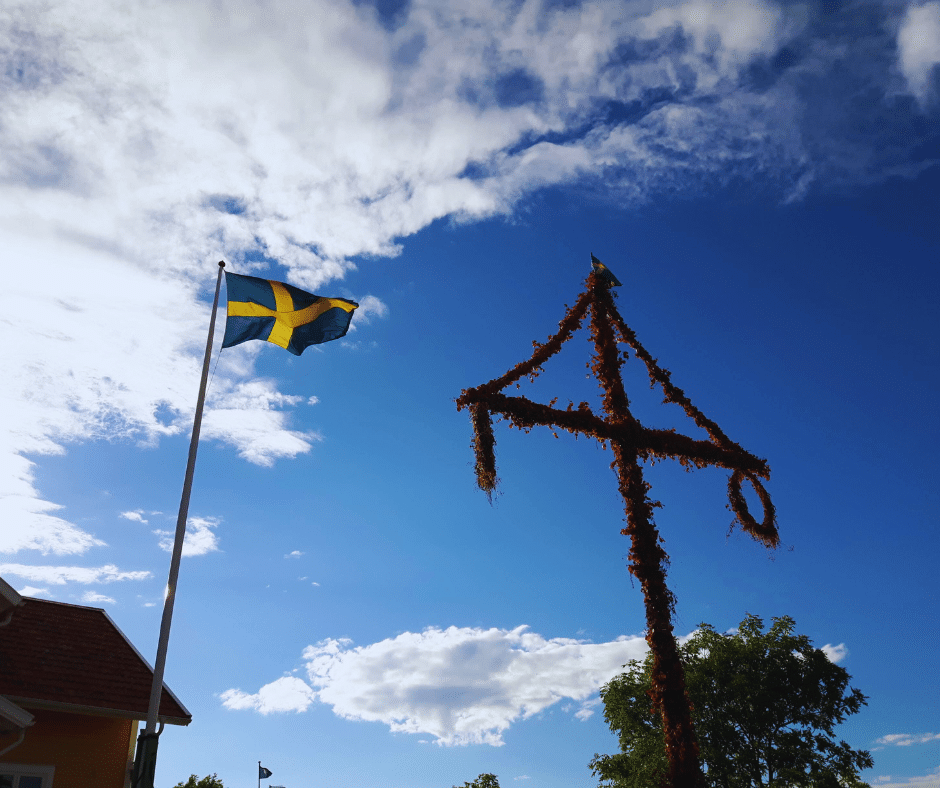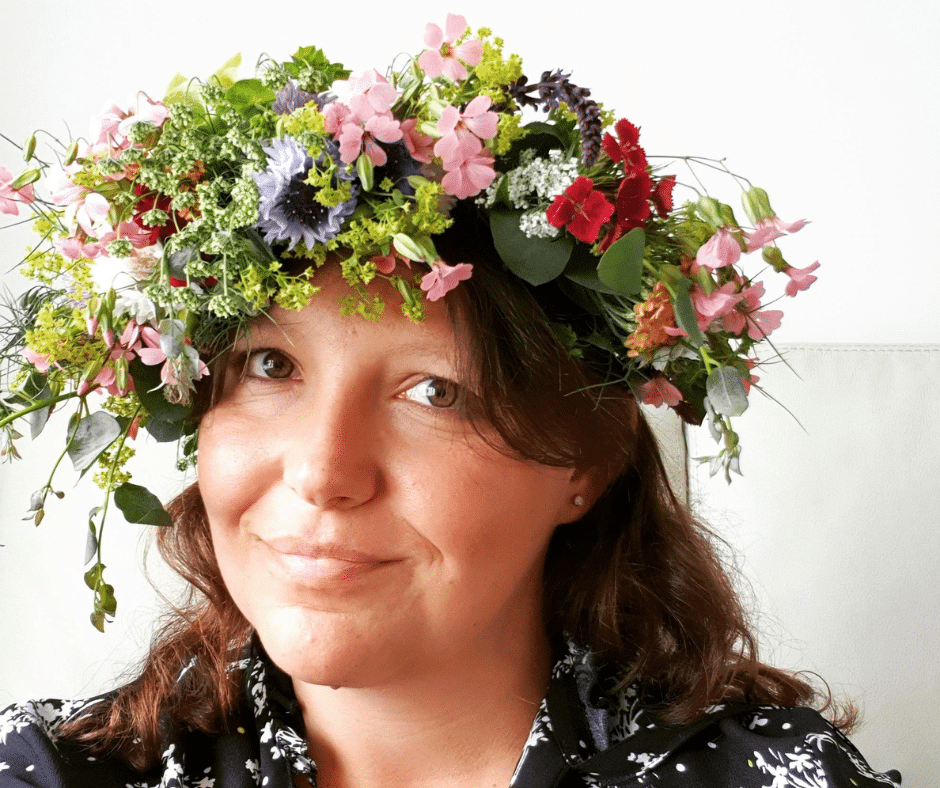There is a lot we can learn from the Swedish people. In terms of equality, care for nature and way of life. Obviously, Sweden also has its flaws and shortcomings, but in general they have got it figured out quite well. Time to take a look at what we can learn from Sweden. Get ready for a post full of clichés!
Work / life balance
Fika
Fika, it has to be my favorite word of the past years. My goal for 2018 is clear: I want to introduce everyone outside of Sweden to fika! Because you have to admit it, what could be more fun than just take a pause every day and enjoy something tasty to eat and drink in nice company. Fika can also be me-time.
Lagom
A second Swedish buzzword that we can learn from is lagom. Lagom is the key to a happy life for me. It can not be translated literally but means as much as ‘not too much, not too little – just enough’. That moderation can be labeled as ‘boring’, but moderation and boring often make people happy. Lagom is about slow living. Turns out I already did / tried that before I heard about this term.
Want to read more about lagom? Then check out this reading tip!
6-hour working day
For the sake of clarity: the 6-hour working day is not a standard in Sweden (yet) but there is plenty of experimentation and from the first results this appears to be a win-win situation for all parties involved. Now say for yourself: during a working day of 8 to 9 hours, you can not be as efficient and concentrated all the time, right? Employees who participate in the 6-hour working day indicate that they have found a better balance between private and work. The sickness absence drops spectacularly and the feeling of happiness improves.
Work climate
Stockholm is known for its start-up scene. The working environment is Sweden is an excellent breeding ground for creative and digital companies. Spotify, Skype and Soundcloud are just a few of the companies that have their roots in Sweden.
Again I could talk about fika. But it goes much further than that: taking unpaid leave when you don’t have any regular leave over is fairly normal in Sweden. Stop working in time to get the children out of school or stopping early on Friday afternoon to drive to your summer house … not a single colleague will make a comment about it. The flexibility does apply in both directions: if there are important deadlines, everyone is expected to step up a notch. Around mid-summer, certain companies are closed for a few weeks: ‘sommarstängt’ or ‘summer closed’.
Equality male / female
Equality between man and woman is one of the pillars of Swedish society. Sweden was the first country in the world to include equality between men and women in legislation. They do not need quotas to recruit women in key positions in management committees. It is a matter of course. In addition to this equality male / female, there is also the law of Jante that says that everyone is equal and nobody should feel better than someone else. There is a lot to be said about that, enough for a separate article!
Gender neutrality
Following the equality between men and women, the concept of gender neutrality is also very common in Sweden. Parents choose to let their children play with cars as well as with dolls. Clothing brands leave the traditional paths that pink is for girls and blue for boys. They leave their children a free choice. Does the girl wants to play soccer? Fine! Does the son want a pink bike? Also fine. This way the children learn that they do not have to think in boxes and they can develop more freely. After all, they do not have to behave according to the expected standards.
Parental leave
The parents get 480 days of parental leave that they can divide between the partners, each of which must take at least 3 months. If they don’t, these 3 months will expire. This way also the fathers are absent for a few months of work and maternity leave or parental leave does not hinder the career.
This parental leave also results in the term ‘lattepappa’. These are fathers who meet with the children for a cup of coffee during their parental leave. In Sweden it is a very normal sight to see the daddy (to make the cliché image complete, with a ‘ man bun ‘) pushing the Bugaboo Donkey.
The parents can easily be absent from work for a longer period and then simply return to their old position. Moreover, it generally ensures a better bond with their children.
Respect for nature
Sweden lives closer to nature. They are surrounded by miles of forests and lakes. Even in big cities such as Stockholm or Gothenburg, green or water is never far away. They realize like no other that they have to take care of nature and they care about the environment.
Allemansrätt
The Allemansrätt or Right of Common stipulates that you can enter private land in Sweden (and also in Norway and Finland) to enjoy the free nature. You can set up your tent for a night to camp (out of sight of houses!), Walking, cycling, swimming and sailing. You can pick certain flowers, berries and mushrooms. Hunting and fishing is forbidden. In addition, you can not damage nature and disrupt the owner.
Outdoor and sun
The short winter days ensure that the Swedes have learned to fully enjoy. As soon as there is a ray of sunshine, no matter how cold it is, the Swedes go out and the terraces are full in no time. They know that vitamin D adds to their happiness level. It even goes further. Even if the weather is not that nice, they will still go out. In Sweden there is no bad weather, only bad clothes. Det finns inga dåliga väder bara dåliga kläder (there is no bad weather, only bad clothes) will be the most proverbial phrase. Sometimes joking because of course they also have their belly full of changeable weather!
A lot of movement
Following the above: at every hour of the day you can see Swedish people working out: from power walking to jogging, from cross-country skiing to the ute gyms or outdoor gyms. They fully enjoy the outdoors and nature. The average Swede likes to work-out or train. Maybe a compensation for the many fikas?
Tap water
In Sweden you can hardly find bottled mineral water. Why would they bottle the nice, fresh water that comes out of the tap everywhere in plastic? A must if you are traveling to Sweden is a reusable water bottle.
That very potable tap water is filtered from the Swedish lakes. An extra good reason to live environmentally conscious: of course you do not want to contaminate your own drinking water. By drinking tap water, they also save a lot of waste.
Furthermore, they are also well aware of not wasting water. A few years ago the Swedish king proclaimed that a bath in the house should be banned because of the water wastage that goes with it.
Organic and healthy food
When I am on the road it is often not easy to find something healthy to eat. In Stockholm and in the rest of Sweden that is generally a lot easier. Everywhere you can find organic, healthy and / or vegetarian dishes. The nordic kitchen prides itself on cooking organic, seasonal and local products. Because it is tasty. And also because it is healthy and environmentally friendly.
Do not forget restaurants like Djuret in Stockholm where they try to use everything from the animal to throw away as little as possible or restaurants / department stores that also include ‘crazy vegetables’ such as crooked cucumbers in their offer.
Respect for each other
What strikes me every time in Sweden is how much respect people have for each other. That goes from small things like having respect for someone’s personal space to respecting the fact that someone else can and should have a different opinion. Leave each other in his / her value.
Get on time
7 o’clock in Sweden is really 7 o’clock and not 5 minutes later. Meetings start punctually and even if you are expected at 20h30 at a party, everyone dives up on time. It is a form of respect not to let the other person wait because time is precious. Latecomers are called time optimists.
Standing in line
At the bus stop, in the shop, … everywhere in Sweden they are standing in line. The cliché image of a row of waiting Swedes who stand patiently in a row are real! No one complains about the long line but patiently waits his / her turn. And don’t try to pass! Nobody will say something about it, but the looks will say enough. Only when boarding the bus / metro / train this respect for each other apparently does not apply: while people are still trying to get off, they are already drumming up.
Coziness
When we hear cosiness or ‘hygge’ we immediately think of Denmark but the Swedes know something about it too and have their own word for it: mysig. In Scandinavia they are masters in cosiness. I think it’s one of their tricks to survive the long dark winters: they settle under a blanket on the sofa, light candles and enjoy a warm cup of coffee / tea / hot chocolate milk.
Also mysig: social gathering during the midsummer party or when after a walk through the snow they make a fire and do outside fika! Christmas time is also a wonderful time in Sweden where cosiness reigns supreme.
What is actually a practical thing also causes that homely feeling. As soon as you enter a Swedish home, you take off your shoes. You immediately feel at home at stocking feet. Besides the fact that you do not bring the snow and the mud into the inside, barefoot or in your socks also ensure that your feeling of happiness goes up. Try it yourself!
Design and music
I believe it is also the long cold and dark winters that make the Swedes so good in design and in music. In addition, the Swedes generally live fairly small and convenient living solutions are therefore a necessity. In combination with the ‘mysig’ factor, it goes without saying that they also try to design this nicely.
An evening around the fire is then again very inspiring to make music. Music is one of Sweden’s most important export products. Of course we think of ABBA. But also Roxette, Europe, Neneh Cherry, Emilia, The Cardigans, Alcazar, … all come from Sweden. Moreover, there are some top producers in Sweden who are also responsible for the sound of many international stars.
Can you supplement other things that we can learn from the Swedes? Can you also think of things where the Swedes could learn from other nations?





